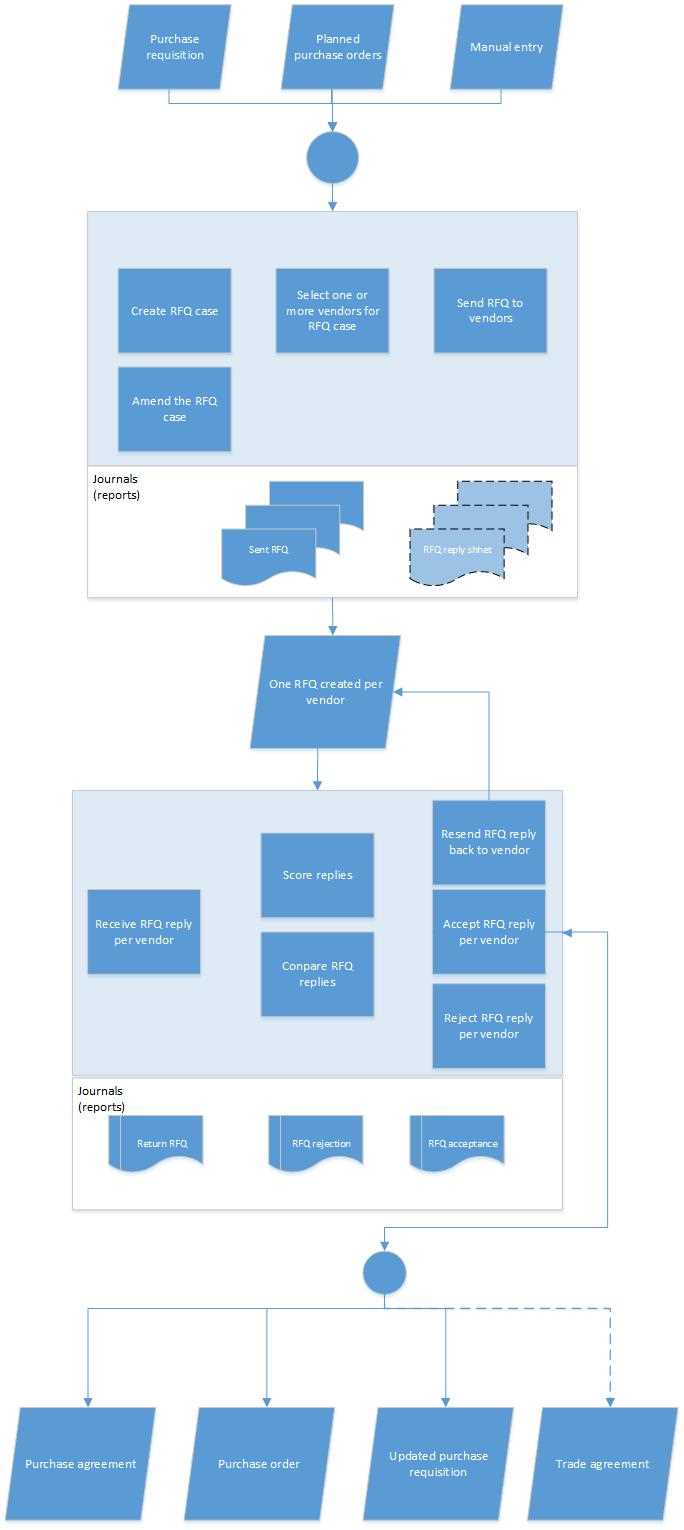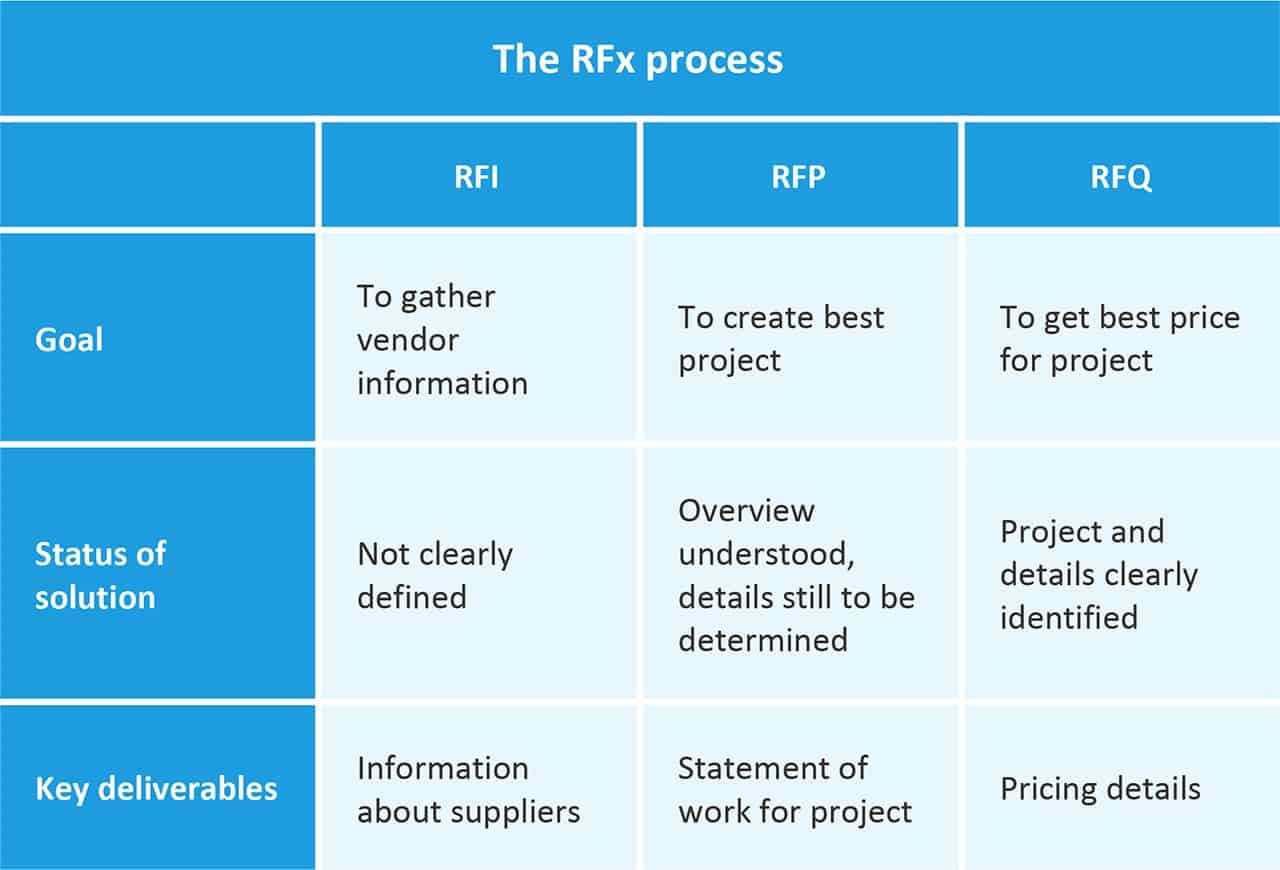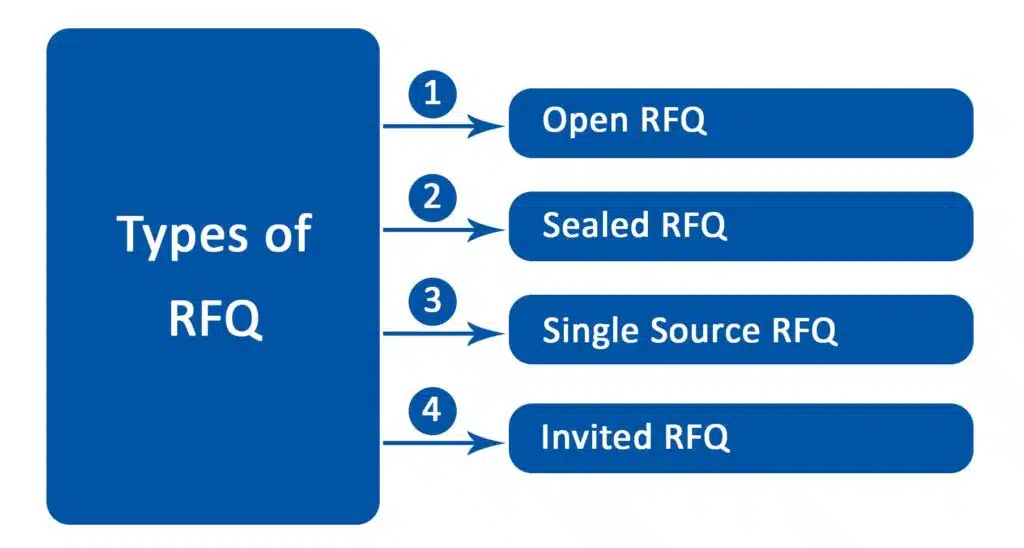What is a Request for Quote?
A Request for Quote (RFQ) is a formal document that businesses use to solicit bids from suppliers for a specific product or service. It is a crucial step in the procurement process, as it allows businesses to compare and evaluate different suppliers based on their pricing, quality, and other factors.
Definition and Purpose
The main purpose of an RFQ is to obtain competitive quotes from suppliers, allowing businesses to make informed decisions based on factors such as price, quality, delivery time, and other terms and conditions. It helps businesses ensure that they are getting the best value for their money and encourages suppliers to provide their best offers.
RFQs also serve as a formal communication tool between businesses and suppliers, outlining the requirements and expectations clearly. They help establish a transparent and fair bidding process, ensuring that all suppliers have an equal opportunity to compete for the business.
How Businesses Use RFQs
Businesses use RFQs in various industries and sectors, including manufacturing, construction, IT, and services. Some common use cases for RFQs include:
- Sourcing raw materials or components for manufacturing
- Procuring equipment or machinery
- Hiring contractors or service providers
- Outsourcing specific tasks or projects
By issuing an RFQ, businesses can gather detailed proposals from potential suppliers, compare their offerings, negotiate terms, and ultimately select the best supplier for their needs.
RFQs can be used by businesses of all sizes, from small startups to large corporations. They provide a structured approach to procurement, helping businesses streamline their sourcing processes and make informed decisions.
Definition and Purpose
A Request for Quote (RFQ) is a formal document that businesses use to solicit bids from suppliers for the purchase of goods or services. It is a common practice in the procurement process, especially for businesses that rely on external suppliers for their operations.
The purpose of an RFQ is to gather detailed information and competitive pricing from potential suppliers. By issuing an RFQ, businesses can compare different offers and select the supplier that best meets their requirements in terms of quality, price, delivery time, and other factors.
RFQs are typically used for complex or high-value purchases, where the specifications and requirements are well-defined. They provide a structured framework for suppliers to submit their proposals, ensuring that all necessary information is included and allowing for an objective evaluation of the bids.
Key Components of an RFQ
An RFQ typically includes the following key components:
- Introduction: This section provides an overview of the RFQ and the purpose of the procurement.
- Specifications: Here, the business outlines the detailed requirements for the goods or services being procured, including technical specifications, quantities, delivery dates, and any other relevant information.
- Pricing: Suppliers are requested to provide their pricing information, including unit prices, discounts, and any additional costs or fees.
- Terms and Conditions: This section outlines the terms and conditions of the procurement, such as payment terms, warranties, delivery terms, and any other contractual requirements.
- Evaluation Criteria: The business specifies the criteria that will be used to evaluate the bids, such as price, quality, experience, and delivery time.
- Submission Details: Suppliers are provided with instructions on how to submit their proposals, including the deadline, format, and any required supporting documents.
By using an RFQ, businesses can streamline their procurement process, ensure transparency and fairness, and ultimately make informed decisions when selecting suppliers. It allows for a structured and efficient way to gather and evaluate supplier proposals, leading to better outcomes for the business.
How Businesses Use RFQs
Request for Quotes (RFQs) are an essential tool used by businesses to streamline their procurement process and ensure they receive competitive pricing from suppliers. Here are some key ways in which businesses use RFQs:
1. Supplier Selection
RFQs allow businesses to solicit quotes from multiple suppliers, giving them the opportunity to evaluate and compare different options. By requesting quotes from various suppliers, businesses can assess factors such as price, quality, delivery time, and terms and conditions. This enables them to make an informed decision and select the supplier that best meets their requirements.
2. Cost Comparison
RFQs provide businesses with the ability to compare costs from different suppliers. By requesting quotes, businesses can analyze pricing structures, discounts, and additional charges. This helps them identify the most cost-effective option and negotiate better deals with suppliers.
3. Negotiation Tool
RFQs serve as a negotiation tool for businesses. Once businesses receive quotes from suppliers, they can use these quotes as leverage to negotiate better terms and pricing. By having multiple quotes, businesses have more bargaining power and can secure favorable agreements with suppliers.
4. Standardization
RFQs help businesses standardize their procurement process. By using a consistent format for requesting quotes, businesses can ensure that all suppliers receive the same information and provide quotes based on the same criteria. This simplifies the evaluation process and allows for easier comparison of quotes.
5. Risk Mitigation
RFQs help businesses mitigate risks associated with procurement. By requesting detailed quotes, businesses can gain insights into suppliers’ capabilities, financial stability, and track record. This information allows businesses to assess the risks associated with each supplier and make informed decisions to minimize potential risks.
Benefits of RFQs
Request for Quotes (RFQs) offer several benefits to businesses looking to source goods or services. Here are some key advantages:
1. Competitive Pricing
By soliciting quotes from multiple suppliers, businesses can compare prices and negotiate better deals. RFQs allow companies to leverage competition among suppliers, resulting in more competitive pricing.
2. Time and Cost Savings

RFQs streamline the procurement process by providing a structured framework for requesting and evaluating quotes. This saves time and reduces administrative costs associated with sourcing goods or services.
3. Supplier Evaluation
RFQs enable businesses to evaluate potential suppliers based on their responses. By reviewing quotes, companies can assess the capabilities, quality, and reliability of suppliers before making a decision.
4. Standardization
Using RFQs helps standardize the procurement process by providing a consistent format for requesting quotes. This ensures that all suppliers receive the same information and allows for easier comparison of quotes.
5. Transparency
RFQs promote transparency in the procurement process. By clearly specifying requirements and evaluation criteria, businesses can ensure fairness and objectivity in supplier selection.
Process of Creating an RFQ
Creating a Request for Quote (RFQ) involves several steps to ensure that the document accurately reflects the company’s needs and requirements. The process typically includes the following:
- Research potential suppliers: Once the need is identified, the next step is to research potential suppliers who can fulfill the requirements outlined in the RFQ. This may involve conducting market research, seeking recommendations, or reaching out to industry contacts.
- Develop the RFQ document: The RFQ document should clearly outline the company’s requirements, including specifications, quantities, delivery timelines, and any other relevant details. It is important to provide enough information to suppliers so that they can accurately respond to the request.
- Distribute the RFQ: After the RFQ document is developed, it needs to be distributed to potential suppliers. This can be done through various means, such as email, online platforms, or direct mail.
- Set a deadline: It is important to set a deadline for suppliers to submit their quotes. This ensures that the company has enough time to review the responses and make a decision.
- Review and evaluate the quotes: Once the deadline has passed, the company should review and evaluate the quotes received from suppliers. This may involve comparing prices, assessing the quality of products or services offered, and considering other factors such as supplier reputation and past performance.
- Select a supplier: Based on the evaluation of the quotes, the company can select a supplier that best meets their requirements. This decision may involve considering factors such as price, quality, delivery timelines, and overall value for money.
- Notify the selected supplier: After selecting a supplier, it is important to notify them of the decision and provide any additional information or documentation required to proceed with the purchase.
- Document the process: Throughout the entire RFQ process, it is important to document all steps taken, including communication with suppliers, evaluation criteria, and the final decision. This documentation can be useful for future reference and for maintaining transparency in the procurement process.
By following a systematic process for creating an RFQ, businesses can ensure that they receive accurate and competitive quotes from suppliers, ultimately leading to better purchasing decisions and improved efficiency in the procurement process.
Key Considerations for RFQs
When creating a Request for Quote (RFQ), there are several key considerations that businesses should keep in mind to ensure a successful procurement process:
1. Clearly Define Requirements
It is crucial to clearly define the requirements and specifications for the products or services being requested. This includes providing detailed descriptions, quantities needed, delivery timelines, and any specific quality standards that must be met. By clearly defining requirements, businesses can ensure that suppliers understand what is expected and can provide accurate quotes.
2. Research Potential Suppliers

Before sending out an RFQ, it is important to research and identify potential suppliers who have the capability to meet the requirements. This may involve reviewing supplier catalogs, conducting online research, or seeking recommendations from industry peers. By identifying qualified suppliers, businesses can ensure that they receive competitive quotes from reliable and reputable sources.
3. Develop a Clear Evaluation Criteria

Businesses should establish a clear evaluation criteria for comparing and selecting quotes. This may include factors such as price, quality, delivery time, supplier reputation, and past performance. By developing a clear evaluation criteria, businesses can objectively assess quotes and make informed decisions.
4. Communicate Expectations and Deadlines
When issuing an RFQ, it is important to clearly communicate expectations and deadlines to potential suppliers. This includes providing a timeline for submitting quotes, specifying any required documentation or samples, and outlining the evaluation and selection process. By communicating expectations and deadlines, businesses can ensure that suppliers have all the necessary information to prepare and submit their quotes in a timely manner.
5. Allow Sufficient Time for Response
6. Maintain Open Communication
Throughout the RFQ process, it is important to maintain open communication with potential suppliers. This includes promptly answering any questions or clarifications they may have, providing updates on the progress of the evaluation process, and notifying them of the final decision. By maintaining open communication, businesses can build stronger relationships with suppliers and ensure a smooth procurement process.
By considering these key factors, businesses can maximize the effectiveness of their RFQ process and obtain competitive quotes that meet their requirements.

Emily Bibb simplifies finance through bestselling books and articles, bridging complex concepts for everyday understanding. Engaging audiences via social media, she shares insights for financial success. Active in seminars and philanthropy, Bibb aims to create a more financially informed society, driven by her passion for empowering others.
